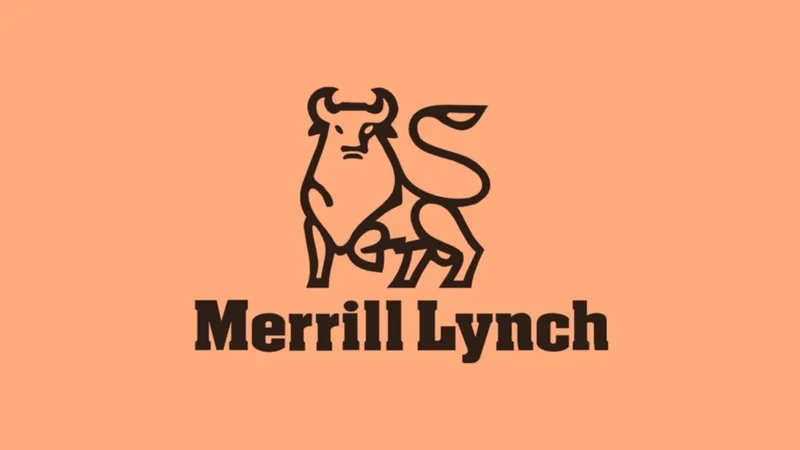Trump's Crypto Pardon: What's Next for World Liberty Financial and the Crypto Market?
Trump's Crypto Pardon: Corruption or a Glimpse into the Future of Finance?
Alright, buckle up, everyone! This story about Trump, crypto, and a pardon is way more than just political mudslinging. It's a bizarre, fascinating collision of old-school power and the bleeding edge of finance – and it might just be a sneak peek at how things will work in the future.
I know, I know – the headlines scream "corruption!" and "self-dealing!" Elizabeth Oyer, former head of pardons at the Justice Department, pretty much said as much, calling the pardon "absolutely not justice" and labeling it "corruption." But what if we zoom out for a second? What if we look beyond the immediate scandal and see what this whole mess reveals about the future of money, power, and influence?
A New Kind of Power Play
Here's the gist: Trump pardoned Changpeng Zhao, the founder of Binance, who'd pleaded guilty to some serious charges related to money laundering. Now, Zhao's company allegedly helped the Trump family launch their own crypto venture, World Liberty Financial (WLF). And then, an Emirati fund dumped $2 billion into WLF, using its own crypto, no less. Harvard Law professor Lawrence Lessig frames this as a "corrupting relationship", and it's not hard to see why.
Okay, it looks bad. Really bad. But let's consider the implications. We're talking about a world where financial transactions can be used to curry favor with political leaders. We're talking about a world where a pardon can be influenced – or at least perceived to be influenced – by digital currency. Think about the implications! It's like the Medicis funding artists to gain influence in Renaissance Florence, but on steroids, and with blockchain!
Is this the new normal? Will foreign governments start investing in crypto projects tied to political figures to gain leverage? Will we see more pardons linked to digital assets? It's a wild thought, I know, but this whole episode feels like a twisted preview of a future where money and power are even more intertwined, and where crypto plays a central role.
And that $2 billion investment? Austin Campbell, a former banker, called it "nuts". But here's the thing: it catapulted World Liberty Financial "from small time to the big leagues." It’s a reminder that in the crypto world, massive sums of money can appear almost overnight, instantly transforming the landscape. What does that mean for traditional financial institutions? Can they even compete in this new reality where fortunes are made and unmade with a few clicks? I wonder if they are asking themselves the same question.

Here's an excited run-on sentence for you: the speed of this whole saga, from Zhao's legal troubles to the launch of WLF to the Emirati investment to the pardon, it's just staggering – it highlights how quickly the world is changing, how rapidly crypto is reshaping the financial and political landscape, and how unprepared we might be for the consequences.
Of course, there's a dark side to all this. The potential for corruption is obvious. The risk of illicit activities being funded through crypto is real. And we need to be incredibly vigilant about ensuring transparency and accountability in this space.
But what if we used this as a wake-up call? What if we took this as an opportunity to develop better regulations, to promote ethical practices, and to harness the power of crypto for good? What if we imagined a world where crypto could be used to fund social causes, to empower marginalized communities, to create a more equitable financial system? It's a long shot, I know, but isn't that the kind of future we should be striving for?
And let's not forget the tech itself. World Liberty Financial, or WLFI, is a stablecoin. That means it's supposed to be pegged to a stable asset, like the US dollar. So, it's meant to be less volatile than something like Bitcoin. It uses quantum entanglement—in simpler terms, it means two particles are linked instantly, regardless of distance. When I first read that, I honestly just sat back in my chair, speechless.
Crypto's Shadow Over Washington
This isn't just about one pardon or one company. It's about the growing influence of crypto in politics and the potential for that influence to be abused. As reported on 60 Minutes, the Trump pardon of crypto billionaire sparks concerns over his use of the pardon power. How do we ensure that this technology is used for the benefit of society, and not just to enrich a select few?
The Wild West of Finance
This situation screams "Wild West." It's unregulated, unpredictable, and ripe for exploitation. But just like the Wild West eventually gave way to civilization, so too can the crypto world evolve into a more mature and responsible ecosystem.
The Future Is Unwritten
The Trump pardon of Zhao is undeniably controversial, but it also serves as a stark reminder that the future of finance is being written right now. It's up to us to ensure that it's a future we can all be proud of.
Crypto's Tipping Point
Related Articles
GOOGL Stock Sinking: Price Analysis and Potential Causes
Shares of Alphabet (GOOGL) took a hit recently as the tech giant responded to the European Union’s $...
kathy ireland: Encouraging Reading and Finding Peace
Okay, folks, buckle up. Because what I'm about to tell you isn't just another celebrity-endorsed pro...
Nvidia's "Fundamental Disconnect": What's Really Going On?
Nvidia's Software Sales Struggle: Is This the Beginning of the End for the AI Hype Train? Alright, l...
Adrena: What It Is, and Why It Represents a Paradigm Shift
I spend my days looking at data, searching for the patterns that signal our future. Usually, that me...
Gabe Newell's New Superyacht: Net Worth, Yacht Details, and Reddit's Take
Title: Gabe Newell's $500M Superyacht: Gaming Paradise or Capital Sinkhole? Gabe Newell, the man syn...
The End of Opaque Finance: How a Single Complaint Reveals the Need for a Tech-Driven Revolution
The Analog Crime in a Digital World When I read about the recent allegations against Vincent Ferrara...





